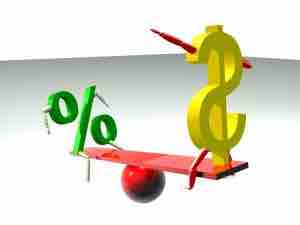The concept of the cost of money has its basis, as does the subject of finance in general, in the time value of money. The time value of money is the value of money, taking into consideration the interest earned over a given amount of time. If offered a choice between $100 today or $100 in a year's time - and there is a positive real interest rate throughout the year - a rational person will choose $100 today. This is described by economists as time preference. Time preference can be measured by auctioning off a risk free security--like a US Treasury bill. If a $100 note, payable in one year, sells for $80 now, then $80 is the present value of the note that will be worth $100 a year from now. This fee paid as compensation for the current use of assets is known as interest. In other words, the concept of interest describes the cost of having funds tied up in investments or savings.

Cost Of Money
The cost of money is the opportunity cost of holding money in hands instead of investing it.
Furthermore, the time value of money is related to the concept of opportunity cost. The cost of any decision includes the cost of the most forgone alternative. The cost of money is the opportunity cost of holding money in hands instead of investing it. The trade-off between money now (holding money) and money later (investing) depends on, among other things, the rate of interest that can be earned by investing. An investor with money has two options: to spend it right now or to save it. The financial compensation for saving it as against spending it is that the money value will accrue through the compound interest that he will receive from a borrower (the bank account or investment in which he has the money).